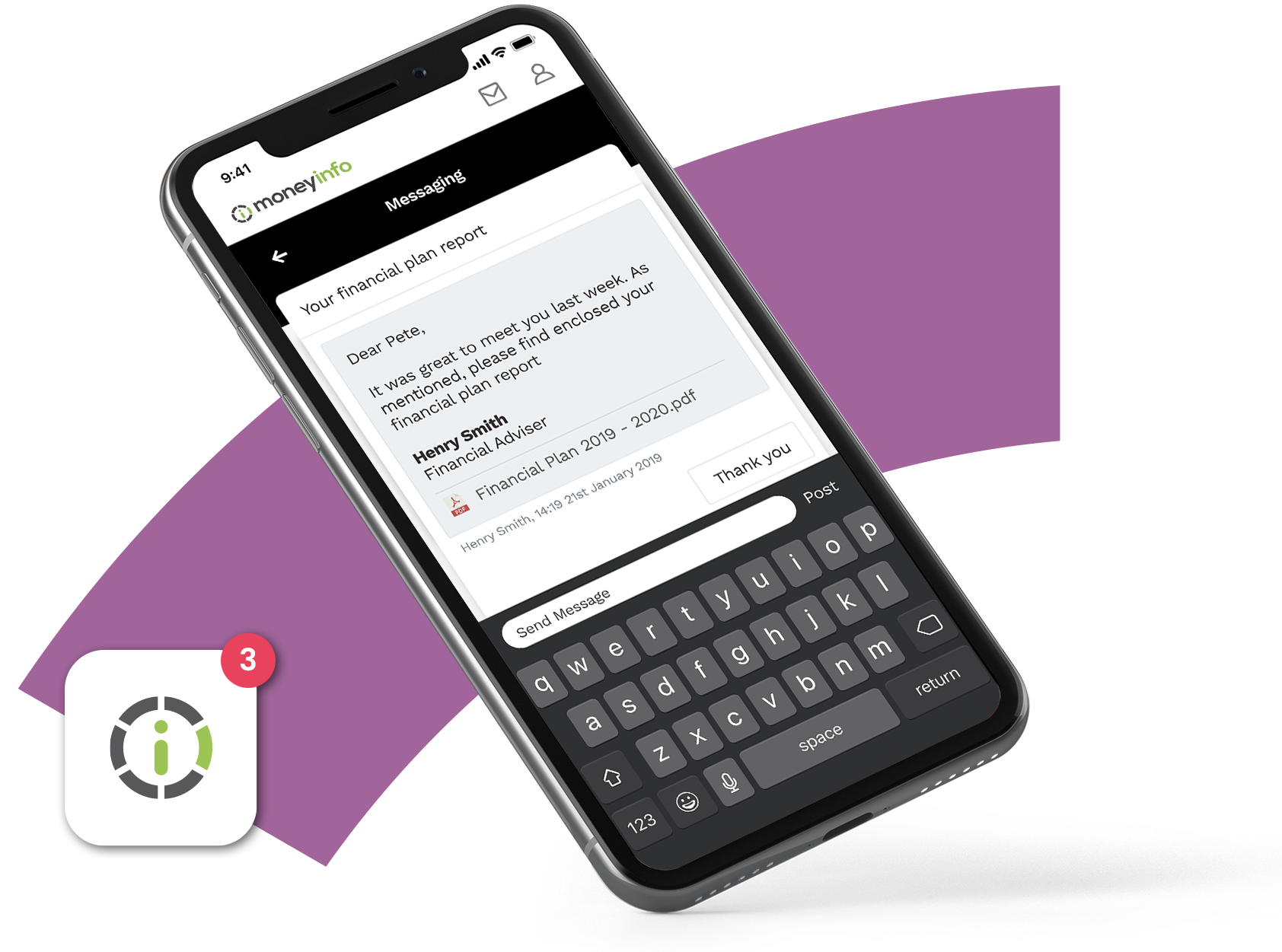What is secure messaging?
Email, secure email and secure messaging: what’s the difference and why should I care?
Having effective and efficient communications between you and your client is the most important element in your business.
Clients and advisers need to be able to communicate efficiently whilst ensuring that the messages are compliant and captured as part of your audit trail. The messaging must be secure and you need a record of successful delivery and when your clients have read the message.
Email is like the post in that you send it to someone via a delivery system. Your email server looks up the recipient’s email address on a DNS server and then uses multiple servers to move the email from one computer to another until it finds its way to its destination. Anybody with the right technology can read these emails as they journey through the internet.
It was invented and developed in 1971 by Ray Tomlinson. It's been one of the most brilliant inventions, changing everyone's lives (mostly for the better) and allowing billions of people to communicate quickly and easily.
Email is increasingly ignored as we all receive too much. Firms find they have to text clients to let them know they have sent an email as emails get lost or caught by our spam filters.
Nearly fifty years on, email is no longer fit for purpose. It is not secure and is neither a safe or efficient way to communicate with clients.
 “Sending an email is equivalent to putting the information on a postcard and sending it through the post.” Ian Mckenna, director at the Finance & Technology Research Centre
“Sending an email is equivalent to putting the information on a postcard and sending it through the post.” Ian Mckenna, director at the Finance & Technology Research Centre
Secure Email
Secure email encrypts your email so that unless you know the password it is unreadable.
This is an improvement over email but has a number of fundamental flaws:
- Both you and your client need to know the password for the encryption. This is both inconvenient and insecure. The passwords must be guessable to both parties, stored somewhere or worse still emailed or texted separately to the recipient unencrypted.
- Once your client receives the information from you, they will store it unencrypted on their computer because they know they will forget the password. Its then available to anybody hacking the machine.
- As a client you get an email asking you to click on a link to read your email. They are taken to a website and asked for their password before they can read the message. The website is unfamiliar, they are already nervous about phishing emails and this feels like one.
- Secure email is still an email and gets lost in spam.
Secure messaging
With secure messaging you and your client log into an encrypted database where the messages are stored. You can read them, respond to them but they never physically leave the encrypted system, they are not stored on your computer, your clients’ computers or their mobile phones. They are records in an encrypted database that can only be read by you and your client.
When a client logs in (recorded) and opens a message (recorded) and responds to a message (recorded), the activity is all tracked. This provides you with evidence to show your client has read and, if needed, responded to your message.
Documents can be shared with the secure message. They are separately stored and encrypted in the cloud and accessible to both you and your client whenever they are needed. They can be shared and signed electronically without any information being sent across the web or via the post.
Both you and your client get a full audit trail of all the communication so there is never any doubt from a compliance perspective as to what has been said and by whom.
Message threads
Email can be very difficult to follow, once you and your client have responded a few times. With secure messaging you respond to a specific message thread as you do in all the other chat services such as WhatsApp, WeChat and Facebook messenger. The format is familiar to your client, they will be using it for keeping in touch with their family and friends. It keeps the conversation together and makes it so much easier to follow what’s been said when you’re reviewing the messages later for compliance.
Template messages
Our secure messaging is even easier to use than WhatsApp as it provides the ability to create template messages. The templates are automatically filled with key client data such as preferred name, operator etc.
Advisers and paraplanners can respond to clients in a pre-considered fashion ensuring consistency of your message across your organisation.
Seconds rather than minutes
There's nothing new in using templates, back-office systems have been able to do similar things via Word and merge fields for years. The key differentiators here are speed, security and mobility. The time to send a message compared to generating a letter through Word is seconds rather than minutes.
 Mobile for your clients
Mobile for your clients
The client receives a push notification on their phone and can read and reply to the message quickly and securely without ever touching email and all via the firm's own branded-app.
Your client responds to you on any device they are using, their smartphone, tablet or PC. The app they use is fully branded for your firm, reassuring as they are not responding on a third-party system they have never heard of.
Mobile for you
Our messages are available to you on your smartphone and tablets via our manager application which is mobile compatible too. It enables you to respond to your clients from wherever you are. Locked-down at home, half-way up a mountain or on a beach in Mexico, you are always available (if you want to be) and always secure.
When you need to respond to a client in a hurry, the message templates are available on your phone so you can select a suitable response in seconds and send it to your client, saving time and typing errors.
We're not a fan of email
We accept that old habits die hard but the evidence against email even so called 'secure email' is overwhelming. Your clients are scared of email, many will ignore it, it gets lost in spam and you leave yourself exposed to a fine under GDPR for not securing personal data.
Secure communications can speed up onboarding, client reviews and rebalancing from days to minutes leaving you more secure and efficient.
You owe it to your clients to protect their financial information.
Sim Sangha is business development director at moneyinfo. For more information please call 03303 600 300 or to arrange a personal 1:2:1 consultation click here.
03303 600 300


